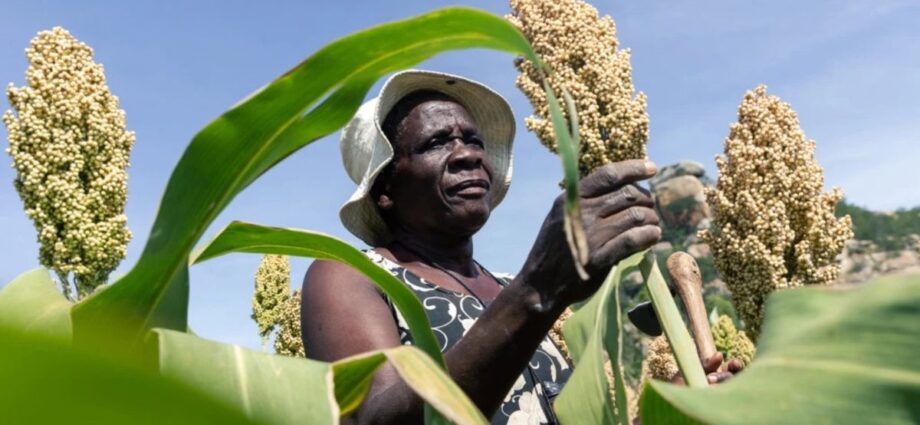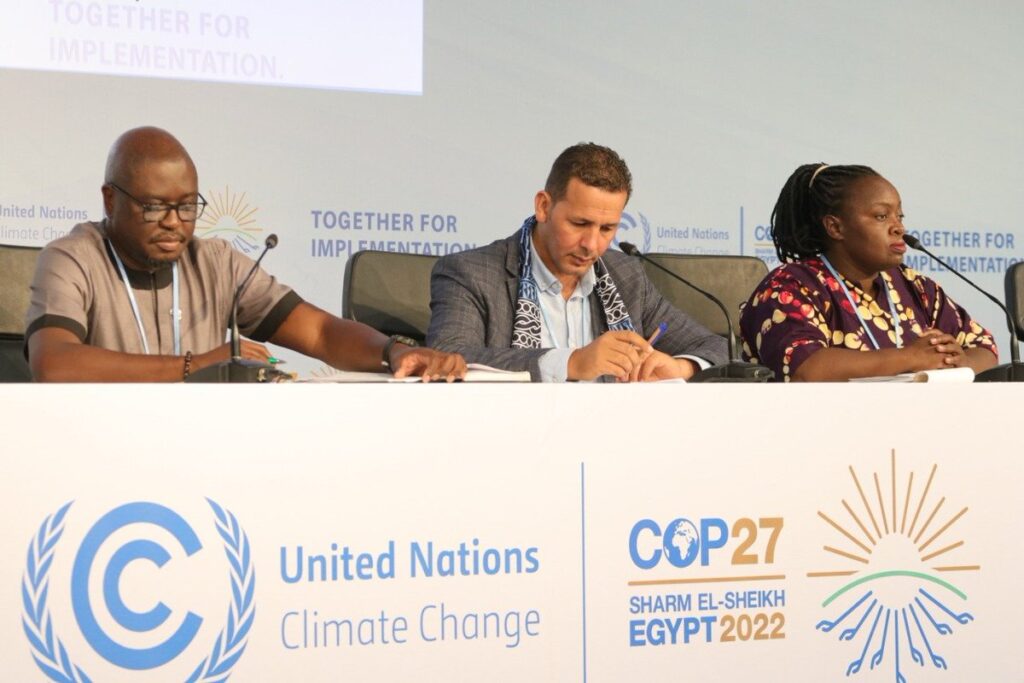Africa’s inability to feed itself has necessitated dependence on fertilizer and food imports to fill the gaps over the years, but the recent Covid-19 global pandemic and the Ukraine–Russia war crises illustrate the fragility of being food insecure.
The African continent stands at a crossroads, with the World Food and Agriculture Organisation (FAO) estimating that over 278 million people in Africa, or 20 percent, suffer from chronic hunger.
Arable land is in decline. The soils are overworked and have become degraded, nutrient-deficient, and susceptible to leaching over time.
The rains no longer come on schedule, and river water volumes have been dropping steadily over the years due to declining forest cover and the destruction of water catchments.
In semi-arid areas, livestock numbers have risen, yet pasture and water resources have dwindled due to human settlement, land use, and habitat changes.
Fisherfolk haven’t been spared either, with overfishing, pollution, siltation, hyacinth infestation, and shifts in water levels impacting fish species and harvests.
Food security is hampered by cultural aspects as well. Certain communities, for instance, will not take up agricultural or fish farming even when opportunities exist, while women and youths in many instances do not own livestock or land.
Africa’s inability to feed itself has necessitated dependence on fertilizer and food imports to fill the gaps over the years, but the recent Covid-19 global pandemic and the Ukraine–Russia war crises illustrate the fragility of being food insecure.
With global economies destabilized, the price of farm inputs has skyrocketed in a grim period when African countries are grappling with the worst drought in 40 years and millions face starvation.
This undertaking can, however, only be accomplished through global and national efforts.
In September last year, world leaders gathered at the United Nations Food Systems Summit in New York and pledged to transform food systems into a key ingredient towards the achievement of the Sustainable Development Goals (SDGs) by 2030.
The SDGs are a United Nations call to action to end poverty and inequality, protect the planet, and ensure that all people enjoy health, justice, and prosperity. This noble call will, however, not be achieved unless global leaders entrench the ‘food systems transformation agenda’ in key global policy processes.
This year’s UN Climate Change Conference in Sharm El-Sheikh, Egypt, provided Africa with an opportunity to seek pledges and make specific demands regarding the transformation of food systems.
During the roundtable on “Food Security,” co-chaired by HE Ulf Kristersson, Prime Minister of Sweden, the Bill and Melinda Gates Foundation, pledged to invest $1.4 billion over four years to support smallholder farmers, particularly women, with innovative digital technologies in Africa.
The International Finance Corporation (IFC) also announced the launch of its $6 billion global food security platform.
No doubt, this is a welcome move.
First, and this is critical, the hunger crisis ravaging the Horn of Africa should not be ignored, but the deliberations that were held should be honoured.
More than ever, African governments should emphasize the need to safeguard food security and end hunger in line with the global call to “end poverty and inequality, protect the planet, and ensure that all people enjoy health, justice, and prosperity.”
To this end, through the funds promised, African smallholder farmers, who are the most vulnerable to the effects of climate change, should be protected.
This calls for global and African leaders and thinkers, from the outset, to view food security not as a production issue but as one that demands a holistic approach that addresses the food system’s ecological, economic, and social dynamics.
Conservation of our natural resources is at the pinnacle.In Africa, as elsewhere in the world, climate and nature have a bearing on food security. But because climate risks, for which Africa contributes the least and whose consequences it suffers, are undermining the continent’s ability to feed itself, the global community is morally bound to help conserve and protect Africa’s natural resources so as to guarantee food for African communities.
Regional institutions such as the African Union (AU), the Intergovernmental Authority for Development (IGAD), and the Africa Development Bank (AFDB) can also help by providing the required leadership, finance, and capacities and developing the required incentives for establishing a sustainable food future.
Africa’s hunger crisis is not only related to calorie hunger but also micronutrient hunger, requiring that any solutions to the continent’s food crisis address nutrition security. The emphasis during this COP should be on creating sustainable diets to protect Africans, who are perennially exposed to extreme hunger periods that impact micronutrient availability.
Equally significant, African leaders must address pre- and post-harvest losses while ensuring waste within the retail and urban food systems is heavily addressed. Implicit here is the global support needed to enable African governments to build capacities and provide infrastructure for sustainable food production and post-harvest management for farmers.
The discussions to focus on building the blue economy to help resolve the food crisis are now live in Africa, regarding sustainable fishing, safe, post-harvest handling, and the protection of fish and marine food habitats that took center stage at COP27, which is also a good start to resolving the hunger crisis.
No doubt, we have seen good ambition in the just-concluded COP27 on food systems integration, as evidenced by the side events and numerous pavilions on food.
From the negotiators, it is still too early to predict. We cannot delay action. The least we can expect from negotiators is an actionable plan and clear modalities on how Africa’s food systems are transformed to face the impacts of climate change.
Nancy Rapanda is Africa’s Food Future Leader, WWF-Kenya
Share this news
This Year’s Most Read News Stories

Fast Satellite Internet in Kenya by June
Elon Musk’s satellite Internet firm Starlink announced it will launch in Kenya in the second quarter of this year.Continue Reading

Cracks show as Zanzibar’s CCM ruling party looks to 2025 polls
Cracks show as Zanzibar’s CCM ruling party looks to 2025 polls over Mr Karume’s allegation against the administration. Time for the ruling party to take stock?Continue Reading

Huduma Zimezorota Hospitali Ya Rufaa Mnazi Mmoja Zanzibar
Huduma katika Hospitali ya Rufaa ya Mnazi Mmoja Zanzibar zimezidi kuzorota huku wananchi wengi wakilalamikia uongozi wa Hospitali hiyo na watendaji wake.Continue Reading












